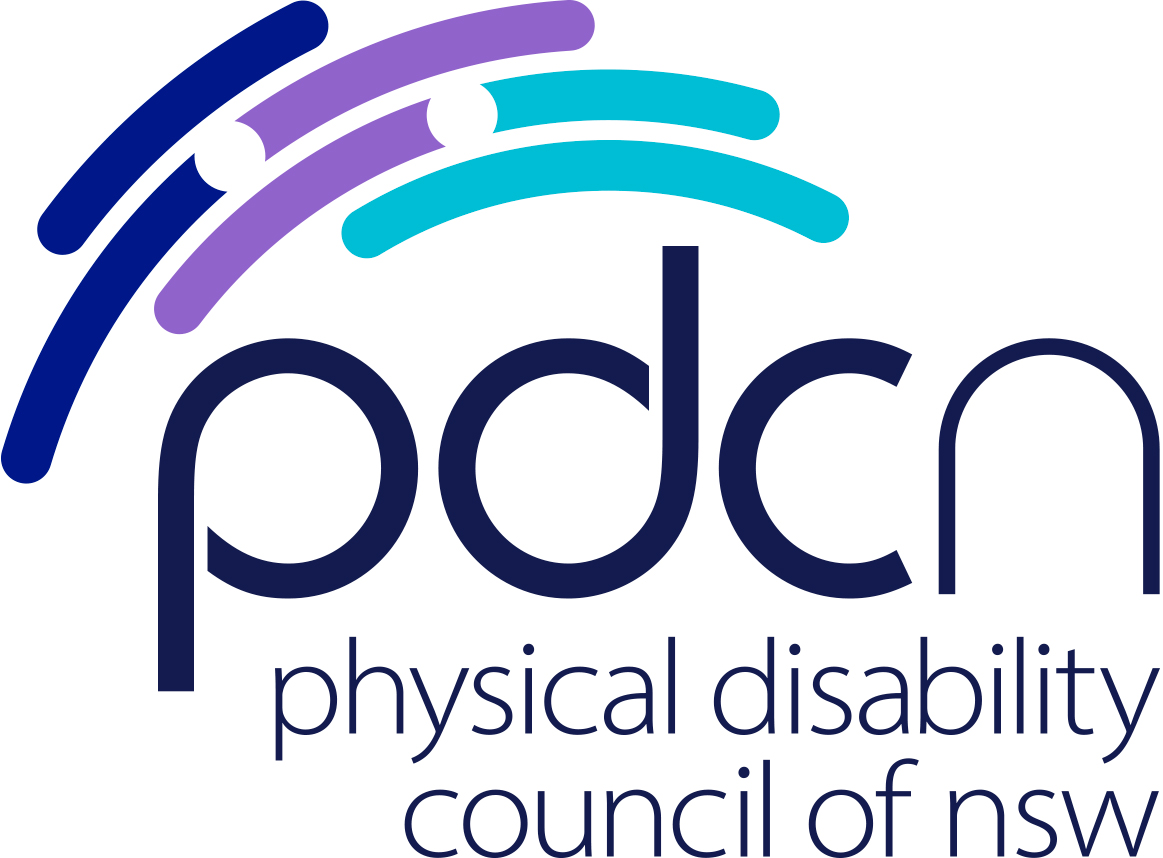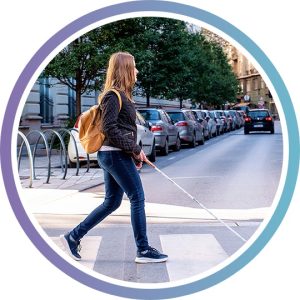The coronavirus pandemic represents a major threat to wellbeing of the Australian population. The virus may represent a greater risk to some people with physical disability (PWD), in particular, those with tetraplegia or high paraplegia level injury, those with existing lung or breathing issues and those who are immunocompromised. Older persons with physical disability may also be at increased risk due to the physiological and immune changes that occur with age, and the increased likelihood that older persons will have existing chronic health conditions.
The restrictions we are facing in our everyday lives as we manage the pandemic have greatly restricted our lives. Many people with physical disability who are at greater susceptibility to the virus are practising self–isolating measures to prevent the risk of infection. They are faced with massive changes to service delivery, reduced capacity to carry out basic day to day activities, as well as isolation from their supports, including family and friends.
With no real way of knowing how long social distancing measures may need to be in place, it is important that both the Federal and State Governments commit to ensuring that people with physical disability receive the support and assistance they require, both during the pandemic and in the period of transition back to normalcy.
As part of this process, it is important that PWD directly inform Government about the issues that they face and that they are given the opportunity to provide input into developing strategies around resolving these issues. We are concerned that the voices of PWD are being left out of important decisions, decisions that will have significant impacts on our members’ lives.
Most critically, there has been insufficient public information around the ethical considerations that will need to be made if we reach a point where our medical system reaches capacity – the question of “who gets the ventilator?” is a discussion that needs to be had, and one that could have a life-threatening impact on persons with physical disability.
We cannot stress enough how vitally important it is that the interests of those with physical disability are given due consideration in these difficult times and that the rights of PWD under the United Nations Convention on the Rights of Persons with Disability (UNCPRD) are upheld.
To these ends, PDCN is calling on the Federal and State Governments to:
1) Commit to funding Disability Advocacy Organisations as an interim measure until June 2021.
NSW Disability Advocacy Organisations are currently funded until December 2020.
The State Government is currently considering various recommendations around restructuring the sector proposed in a report commissioned by the Ageing and Disabilities Commissioner.
These are unprecedented times and normal government operations have been suspended in order to focus on the immediate issues associated with the pandemic.
Various timeframes have been proposed in terms of how long we can expect disruptions to everyday life to continue. The reality is, we simply do not know. Considering the additional issues faced by PWD during this time, it is vitally important that PWD have continuity of service and that disability advocacy organisations are sufficiently resourced to be able to meet the challenges of service delivery during this period.
A lack of funding certainty at this time inhibits the capacity for services to operate with the fluidity and innovation necessary to provide support to the sector during this period.
We call on the State Government to commit to extending funding until June 2021, to provide a much-needed period of stability to the sector, while it considers the recommendations of the report.
2) Commit to the development of a NSW Protocol led by public consultation, on ICU resource allocation in the event that demand exceeds supply.
We are extremely concerned by information which suggests that the healthcare sector may not be sufficiently resourced to deal with increased demand during the pandemic.
Serious ethical considerations need to be made by our society, as a whole, in terms of the allocation of mechanical ventilators and other triage services, including intensive care unit beds, if this situation is realised.
To date, there has not been any open dialogue on the important ethical process of determining how these finite resources are to be distributed equitably. It is important that a consistent approach to resource allocation is determined and that this is a transparent process involving public consultation. People with physical disability are major stakeholders in these decisions – it is important to ensure that any protocol developed is non-discriminatory.
We consider that any protocol should be developed as a matter of priority whilst the number of cases of coronavirus remain low, to ensure that there is the opportunity for genuine public consultation.
3) Commit to ensuring that supply chains for essentials remain open and that all persons with physical disability across NSW have the capacity to access essentials (food, hygiene products and medications) via delivery services.
We have welcomed the supermarket industry initiative of providing specific hours for people at greater risk of contracting coronavirus to shop for essentials. Likewise, we welcomed the injection of additional funding to the Meal on Wheels Service to provide hot meals and other basics to people who are self-isolating.
We remain concerned however, that supply chains for essentials have been impacted by coronavirus, and that our members are still unable to access the essentials they need, either because these supplies are not available in stores or that they cannot access home delivery services due to their location (remote, un-serviced areas) or lack of resources (e.g. no computer, limited internet or unfamiliarity with online ordering services).
We appreciate that NDIS participants will be in receipt of a priority delivery service from major supermarkets as of Monday 6th April, however, whilst this is a definite move in the right direction, this does not account for the 1,232,610 people with disability in NSW who are not eligible for the NDIS,[8] or for those who are not within delivery range of these major retailers.
We ask that the State Government conduct an audit to identify gaps in delivery of essential services across NSW and work towards developing systems to ensure equitable access as a matter of urgency.
4) Access to Personal Protective Equipment (PPE) for any person/s engaging in personal care or other activities requiring close physical contact with PWD via the National Medical Stockpile.
The Government has a National Medical Stockpile of PPE, which has until recently been for use in the Health and Aged Care sectors.
We welcome the recent decision to expand the provision of PPE from the National Medical Stockpile to NDIS self-managers and providers on request.
All persons providing services to PWD where there is a real risk of contracting coronavirus should be able to access PPE in accordance with the directives provided by the Department of Health. This should be irrespective of whether they are providing services under the NDIS.
We ask that the Government extend the provision of PPE from the National Medical Stockpile to any person (or organisation) that can demonstrate that they are carrying out activities for PWD that require them to have close physical contact, where they require PPE to comply with the Department of Health directives and they are otherwise unable to source PPE through their ordinary channels.
5) Expand the Coronavirus Supplement to the Disability Support Pension.
The Federal Government has recently applied a Coronavirus Supplement across a number of government income support payments, including Austudy, the Jobseeker Payment and Youth Allowance. The supplement increases an individual’s fortnightly payment by $550 per fortnight for up to six months.
Like others on government support payments, the everyday costs for those on the Disability Support Pension (the DSP) have risen during the pandemic, especially for services such as phone and internet as well as basic essentials.
In recognition of the ongoing additional costs being incurred by people on the DSP, and the fact that additional income streams for meeting their everyday living costs will be extremely limited during the pandemic, we ask the Federal Government to expand the coronavirus supplement to include the Disability Support Pension, to prevent this group facing significant hardship.
6) Expand the Coronavirus Supplement to the Carer Payment and Carer Allowance.
Similarly, we would ask that the coronavirus supplement be applied to both the Carer Payment and the Carer Allowance.
Both those on the Carer Payment and the Carer Allowance face additional costs during the pandemic.
For persons on the Carer Allowance, the coronavirus pandemic will most likely result in decreased working hours, loss of employment and potentially higher care commitments, especially where family members are in the high-risk category.
We would point out that people who receive the Parenting Payment who are the primary care providers for dependent children (including children with disability) are currently eligible for the supplement.
We are concerned that if carers do not receive this additional assistance, they will face increased hardship over the next few months. We will be calling on the State and Federal Governments to act on these six key issues as a matter of urgency on behalf of all persons with physical disability within NSW.
For further information, or any media requests, please contact Serena Ovens, Chief Executive Officer, 1800 688 831 or 02 9552 1606, serena.ovens@pdcnsw.org.au.
You can read a PDF version of this coronavirus statement HERE.



